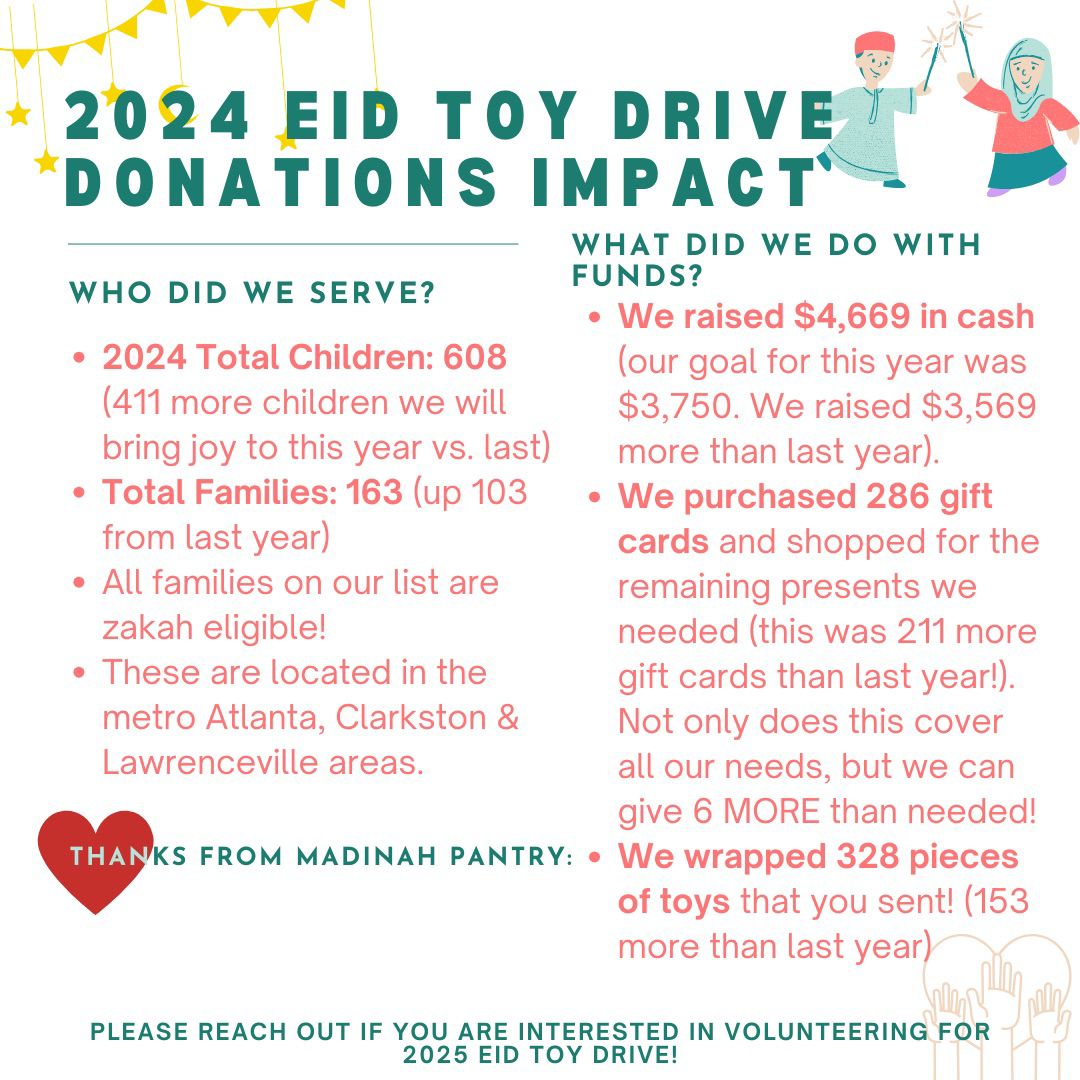
إِنَّمَا الصَّدَقَاتُ لِلْفُقَرَاءِ وَالْمَسَاكِينِ وَالْعَامِلِينَ عَلَيْهَا وَالْمُؤَلَّفَةِ قُلُوبُهُمْ وَفِي الرِّقَابِ
وَالْغَارِمِينَ وَفِي سَبِيلِ اللَّهِ وَابْنِ السَّبِيلِ ۖ فَرِيضَةً مِنَ اللَّهِ ۗ وَاللَّهُ عَلِيمٌ حَكِيمٌ [٩:٦٠]
Alms are for the poor and the needy, and those employed to administer the (funds); for those whose hearts have been (recently) reconciled (to Truth); for those in bondage and in debt; in the cause of Allah; and for the wayfarer: (thus is it) ordained by Allah, and Allah is full of knowledge and wisdom. Suratul Taubah [9] Ayah 60
About this ayatul karimah, from “TafsirJalalayn” of Imams Jalaluddin Suyuti Rahimuhullah and Jalaluddin Mahalli Rahimuhullah we read;
“The voluntary almsgivings, the alms to be dispensed, are only for the poor, who cannot find anything to suffice them in the least, and the needy, who cannot find anything to suffice them, and those who work with them, that is, [with] these alms, in other words, the one who collects [them], the one who takes the oaths [from those who claim them], the slave to be manumitted by contract, as well as the tax-summoner; and those whose hearts are to be reconciled, so that they might become Muslims, or that Islam might be firmly established, or that their peers might become Muslims, or that they might defend Muslims, all of whom are [classed according to different] categories. According to al-Shāfi‘ī, may God be pleased with him, the first and the last [of these categories] are no longer given [of the alms-tax] today, because of the [established] power of Islam; in contrast, the other two [categories] are given [of the alms-tax], according to the sounder [opinion]; and for, the manumission of, slaves, that is, [for] slaves to be manumitted by contract, and for the debtors, those in debt, if they have taken out a debt without intending thereby an act of disobedience, or those who have repented but have nothing with which to fulfil [the penalty of expiation], or to set things right between people, even if they be wealthy; and, for the way of God, that is, [for] those who are engaged in the struggle, of those for whom there is no [share of the] booty (fay’), even if they be wealthy; and for the traveller, the one cut off [from resources] during his journey — a duty imposed by God (farīdatan, ‘a duty’, is in the accusative because of an implied verb [sc. faradahā, ‘which He has imposed’]). And God is Knower, of His creatures, Wise, in His actions.
Thus, it is impermissible to dispense these [alms-proceeds] other than to these [categories], or to deny [these proceeds to] any one of these [categories] if they exist. The Imam must divide these [proceeds] among them equally, but he is permitted to give priority to certain individuals over others within any one category. The lām [of li’l-fuqarā’, ‘for the poor’] indicates that it is obligatory to include every individual [of these categories in the distribution of the proceeds]; it is not, however, obligatory [to do so] when the person in charge of the monies has to apportion it but [finds that] it is insufficient. Indeed [in such a situation] it suffices to give three individuals from each category, but anything less than that is not sufficient, as is indicated by the plural form. The Sunnah shows that the prerequisite condition for receiving [a share] of such [monies] is that the person be a Muslim, but not a Hashimī or a Muttālibī [from the family of Sayyidinaa Muhammad al Mustafa Sall Allahu ‘alaihi wa Aalihi wa sallim].” Tafsir Jalalayn
What is Zakat?
Zakat linguistically means purification. Technically, zakat means the purification of one's possessed wealth by distributing a prescribed amount to those not obligated to pay zakat. Zakat is one of the five fardh [obligatory] pillars or duties of al Islam. Once a believer finds him or herself in a position to fulfill an obligatory act he or she becomes duty bound to gain as much knowledge as is necessary to perform this act of worship. Zakat is one such act of worship whose reward is with Allahu ta ‘ala. Allahu ta ‘ala mentions together the establishment of salaah and the paying of zakat in no less than seventy places in Holy Qur’an Majid. To intentionally reject the paying of zakat when it becomes due, is to place oneself outside the pale of al Islam.
Allah says in the Holy Qur’an Majid:
And there are those who hoard gold and silver and do not spend it in the way of Allah, announce to them a most grievous penalty (when) on the Day of Judgment heat will be produced out of that wealth in the fire of Hell. Then with it they will be branded on their forehead and their flanks and backs. (It will be said to them) This is the treasure which you hoarded for yourselves, taste then the treasure that you have been hoarding. [9:34-35]
What is Nisaab?
The amount of wealth which makes one liable for Zakat is called Nisaab. The Nisaab is 87.48 Grams of Gold or 612.36 Grams of Silver. Nisaab of cash, stock or bonds, other cash assets is the equivalent amount of Gold or Silver. Nisaab is calculated by adding up the cash value of all the assets such as gold, silver, currency etc. and if it is equal to or in excess of the minimum Nisaab. Zakat is due at the rate of 2.5%. The payment of Zakat is compulsory on the excess wealth or effects which are equal to or exceeds the value of Nisaab, and which is possessed for a full Islamic year. If such wealth decreases during the course of the year and increases again to the value of Nisaab before the end of the year, the Zakat then must be calculated on the full amount that is possessed at the end of the year.
The e-nisab.com website is a ready resource for calculating the minimum zakatable amount according to today’s current values.
As a general rule Zakat can be given to any legally poor or needy Muslim individual. A “legally poor” Muslim is defined as anyone who does not possess the zakatable-minimum himself. An “individual” refers to an actual person who is given ownership of the wealth being given in Zakat, as opposed to an institute. This can be anyone except one’s wife, parents, children or Ahl ul Bayt (descendants of the family of Sayyidinaa Muhammad al Mustafa Sall Allahu ‘alaihi wa Aalihi wa sallim). One can give it to an institute if one is sure that they will disseminate the amount one is paying in Zakat to a poor or needy Muslim individual. When donating to Madinah Food Pantry and Family Services, please specify whether the donations are for zakat or for general dispersion.
More specifically, those eligible to receive zakat fall into one of eight categories clearly defined by Allahu ta ‘ala. They are;
- FUQARA: Those who are poor and who possess more than their basic needs but do not possess wealth equal to Nisaab. In this category are those known as the “working poor’ who in spite of having jobs still struggle as some point to provide basic necessities for their families. A common misconception is that if a man is working, he is automatically not eligible to receive zakat funds. Though he may be working, if he does not possess savings in excess of Nisaab [after debts and other obligations such as food, clothing and housing, utility bills etc.] then he or she is eligible to receive zakat funds. The Fuqara are those families who may need supplemental help along the way, even though they may not request it out of a sense of Islamic pride.
- MASAKEEN: Those who are destitute and in extreme need to the extent they are forced to beg for their daily food rations. It is the obligation of those who know families who are miskeen, to provide for them from the Zakaat fund even before they are forced to ask. This is in accord with the hadith where Sayyidinaa Rasuli Akram Sall Allahu ‘alaihi wa Aalihi wa Sahbihi wa sallim is reported to have said; “The one who goes to sleep with a full stomach while his neighbor is hungry is not a true believer.” Hence the near neighbor has a greater right over us than those who are hundreds or thousands of miles away, though both have rights over us.
- AL-AMILEEN: Those appointed by an Islamic Government to collect Zakat. There are two opinions on this matter. Some are of the opinion that the Amileen who collect and calculate zakat can only receive a salary in a truly Islamic state or Khalifate and not in the modern day kingdoms and pseudo socialist states or capitalist states that exist in the Muslim world. This is the majority opinion. They opine that the state should pay the amileen from a general state fund such as all state employees are paid from. In most western countries, Zakat is collected and distributed by Islamic organization such as masjids and social services oriented organizations. Zakat cannot be paid to those charged with collecting and distributing these funds. Daily expenses accrued during the collection and distribution of zakat such as clerical supplies, fuel for vehicles used to collect and distribute these funds must come from donations in a general fund. The other opinion is that whoever collects the zakat can receive a salary regardless of the existence of a true Islamic state or not. This is a minority opinion. The Madinah Food Pantry and Family Services follows the majority opinion and does not use zakat monies to cover the cost of collecting and distributing zakat.
- MU-ALLAFATUL-QULUB: Those who have recently accepted Islam and in need of basic necessities who would benefit from encouragement by Muslims which would help strengthen their faith. The revert or new shahaadah Muslims may receive zakat to help them on their way. New Islamic apparel may be purchased as gifts, food may be purchased or cash gifts may be given to endear their hearts to Islam and the Muslim ummah.
- AR-RIQAAB: Are slaves who are permitted to work for pay and have an agreement from their owners to purchase their freedom on payment of a fixed amount. For all intents and purposes this category is non-existent today.
- AL-GHAARIMEEN: Those who in debt but do not possess enough wealth or goods to sell or trade with which to repay that which they owe. It is conditional that this debt was not created for any un-Islamic purpose such as gambling, bar tabs, cable television etc. Zakat monies may be used to pay utility bills, such as electric, gas, rent, etc. Because of dishonest people preying on the good nature of the Muslim Social Scientists, It has become necessary in the West to ascertain the nature of the debt by doing a professional intake and for the Islamic organization to pay the utility company or rental agent directly.
- FI-SABILILLAH: Those who have to carry out a deed which has become obligatory on them and subsequently (due to loss of wealth) are unable to complete that obligation. In this category falls those who, while performing Hajj or Umra fall short of funds to complete it and make it back home. Students who have left their homes in search of knowledge may also receive zakat to fund their education and personal needs as well as travel expenses.
- IBN-US-SABEEL: Those travelers who during the course of their journey find themselves in need of assistance to return home. Though they are well to do at home, yet not able to access their funds, they may receive Zakat in order to return home safely. These funds may be used for food, lodging and transportation expenses.
Zakat should be given as soon as possible after it becomes due. All of the Zakat can be given to one person or to several persons .A poor man cannot be paid for his work from Zakat nor can Zakat be given in payment of services, except to the people appointed by the Islamic government to collect Zakat .Zakat will only be valid if the recipient is made the owner of that amount. If, for example, a few needy persons are fed a meal from Zakat money, then Zakat will not be fulfilled as they were not made owners of the food. Zakat cannot be given for the construction of Masjid, Madrasah, Hospital, a well, a bridge or any other public amenity .Zakat can be paid in kind from the same merchandise on which it is due, or alternatively, it could be paid in cash.
TYPES OF WEALTH ON WHICH ZAKAT IS IMPOSED:
- Gold and silver, in any form.
- Cash, bank notes, stocks, bonds etc.
- Merchandise for business, equal to the value of Nisaab.
- Live stock.
- On income derived from rental business.
TYPES OF WEALTH ON WHICH ZAKAT IS NOT IMPOSED:
- On any metals other than gold or silver.
- Fixtures and fittings of a shop, car, trucks or any delivery vehicle etc., which is used in running business.
- Diamonds, pearls, other precious or semi-precious stones which are not intended for sale or trade but for personal use.
- There is no Zakat on ones’ personal residence,household furniture,pots and pan, personal clothing, whether they are in use or not.
- There is no Zakat on a person whose’ liabilities exceed or equal his assets. (Home Mortgage in this country is not to be counted as personal liability for the Zakat purpose).
VIRTUES OF ZAKAT:
Allah says in the Quran: "The parable of those who spend their wealth in the way of Allah is that of a grain of corn. It grows seven ears and each ear has hundred grains. Allah increases manifold to whom He pleases." (Quran 2:261) It is stated in the Hadith that by giving Zakat the following benefits are derived:
- Gain the pleasure of Allah.
- Increase in wealth and protection from losses.
- Allah's forgiveness and blessings.
- Protection from the wrath of Allah and from a bad death.
- A shelter on the Day of Judgment;
- Security from seventy misfortunes.
Zakat: How to Calculate
Zakat is due on a yearly basis when a morally-responsible Muslim possesses the minimal zakatable-amount (nisab) above and beyond his debts and immediate expenses, and a complete lunar year passes over it. In calculating one’s Zakat one calculates all his zakatable assets together. “Zakatable assets” include:
(a) Cash - whether in currency form or in the bank,
(b) Gold and Silver,
(c) Money lent out,
(d) Trade goods,
(e) Stocks, and
(f) Agricultural produce.
After one calculates the above, one deducts:
(a) Debts, and
(b) Immediate expenses.
Some Illustrated Examples
It should be known that anyone who possesses a zakatable-minimum (nisab) the obligation to pay Zakat will commence. As soon as one possesses this amount, one’s Zakat year will start, and he will be obligated to actually pay Zakat once a whole year has passed if he still possesses an amount equal or more than the zakatable-minimum. The zakatable-minimum is equivalent to the value of 87 grams of gold.
Example 1:The zakatable-minimum is $2000. One possess $1000 of cash, $1500 of gold and silver, and $2500 in trade goods then his total zakatable assets amount to $5000 (supposing he has no money lent out, stocks, or agricultural produce). However, he also has a debt of $500 and his immediate monthly expense amounts to $500 also, which will be subtracted. Thus, his total zakatable wealth is $4000. This is above the zakatable-minimum, so the obligation to pay Zakat will commence.
If one possessed this amount on the 1st of Rabi` al-Awwal then this is when his Zakat year starts. If then, for example, he possesses $2500 on the 2nd of Rabi` al-Awwal of the next year, he will have to pay 2.5% of $2500. Thus, what is taken into consideration is the amount one possesses above the zakatable-minimum at the end of one’s Zakat year. This is the amount Zakat is due upon.
Fluctuations during the middle of the year are of no consequence, unless one’s zakatable amount reaches zero. Only the beginning and end of the year are taken into account. One has to possess a zakatable-minimal both at the beginning and at the end of one’s Zakat year for one to pay Zakat.
Example 2:The zakatable-minimum is $2000. One’s zakatable assets amount to $3000. However, one also has $500 of immediate expenses and a debt amounting to $2000. Thus, his total zakatable wealth is $500. This does not reach the zakatable-minimum and so no Zakat is due upon him. In such a case, one’s zakat year does not even commence because one never possessed a zakatable-minimum to begin with.
Example 3:The zakatable-minimum is $2000. One’s zakatable assets amount to $4000. One has immediate expenses of $500 and a debt amounting to $1000. Thus, one subtracts this, and is left with a total zakatable wealth of $2500. He possesses this amount on the 1st of Muharram. Since it is over the zakatable-minimum, his Zakat year starts on this date. On the 2nd of Muharram the following year his total zakatable wealth amounts to $1500, having decreased. Since this is not equal to or more than the zakatable-minimum, no Zakat will be due upon him.







